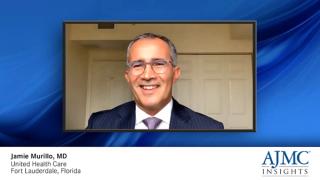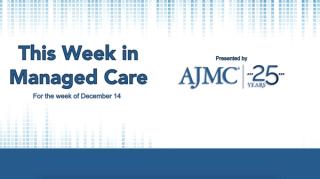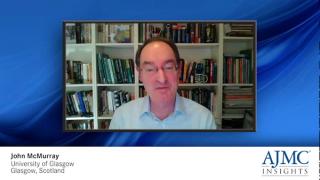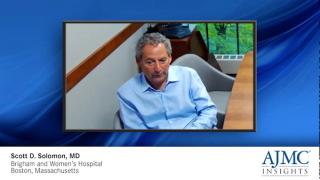
Heart Failure
Latest News

Latest Videos

CME Content
More News

The FDA is increasing oversight of e-cigarettes and similar products that use synthetic nicotine; a lawsuit is brought over Philadelphia's reinstated mask mandate; a study shows drinking water may lower risk of heart failure.

This study investigated long-term cardiac-related mortality as it relates to incidence of perioperative adverse cardiac events (excluding death) in the first 30 days after surgery among a short of patients who underwent non–cardiac-related surgery.

Delayed diagnosis of wild-type transthyretin amyloid cardiomyopathy (ATTR-CM) results in inappropriate treatments prior to diagnosis and worse clinical outcomes after diagnosis.

In this contributor piece, the connection between the complexities of mental health and heart disease in at-risk communities is explored, with the authors stressing the importance of risk factor evaluation and multidisciplinary patient education from both mental and physical health providers.

More than a quarter of patients experience disruptions and delays in treatment for chronic heart failure (CHF) after the initial prescription for sacubitril/valsartan was abandoned/rejected.

What We're Reading: ACA Coverage Expansion; New Heart Failure Guidelines; Poor Air Quality Worldwide
The Biden administration plans to expand Affordable Care Act (ACA) coverage to more families; new guidelines jointly announced by cardiology organizations for the treatment and prevention of heart failure; World Health Organization estimates that 99% of people worldwide are exposed to poor air quality.

This new analysis of data from the Swedish Heart Failure Registry involved an investigation into the relationship between therapy count and dosing on mortality and morbidity among patients with heart failure with reduced ejection fraction (HFrEF).

Two studies presented at the annual meeting of the American College of Cardiology show the safety and effectiveness of regular coffee consumption in regard to cardiovascular disease and heart disease, as well as mortality.
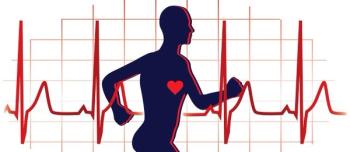
This study enrolled 80 middle-aged patients with stage A heart failure and evaluated them for improvements in several cardiovascular and metabolic risk factors through high-intensity interval training (HIIT) for 1 year and omega-3 fatty acid supplementation.

As a result of being less likely than men to receive lifesaving treatment when experiencing cardiogenic shock, women were significantly less likely to survive in the short and long term.

This systematic literature review reports incidence of adverse drug effects associated with guideline-directed medical therapy for patients with heart failure with reduced ejection fraction.

This new study investigated cardiovascular disease (CVD) risk outcomes among patients with a serious mental illness (SMI) attending primary care clinics that were part of HealthPartners and Park Nicollet in Minnesota and Wisconsin.

A new study of patients receiving care for acute heart failure at Rambam Health Care Campus in Haifa, Israel, investigated how their clinical outcomes might be affected by elevated lactate levels and primary acid-base disorders.

This new analysis of commercial and Medicare Advantage claims from all 50 states investigated utilization of and testing trends for coronary artery disease (CAD) among adults aged 18 and older presenting with new-onset heart failure.

A new study has investigated the influence of xanthine oxidase activity and mitochondrial DNA damage–associated molecular patterns on heart failure and cardiac remodeling among Black adults with resistant hypertension.

A new study from Japan has investigated possible associations between cognitive frailty and overall prognosis among elderly individuals who have heart failure.

This new study investigated the relationship between cardiac function and hemodynamics among individuals presenting with heart failure with preserved ejection fraction (HFpEF) and normal levels of N-terminal prohormone B-type natriuretic peptide (NT-proBNP).

This new subanalysis of data from the Rotterdam Study investigated life expectancy among women and men who live a healthy lifestyle and do or do not have heart failure.

This new investigation, a subanalysis of participant data from the Atherosclerosis Risk in Communities study, examined race- and gender-based differences of heart failure (HF) risk at an older age.

This new study from investigators at University of Calgary investigated the potential of midwall striae fibrosis to predict hospital admission for heart failure.

This new analysis of more than 11 million veterans investigated risks of several cardiovascular diseases beyond the first 30 days after COVID-19 infection.

This study from Italy investigated potential associations between heart failure and comorbid cancer and whether the existence of heart failure predisposed individuals with both to a higher risk of death.

There is a persistent lack of effective treatments for heart failure with preserved ejection fraction (HFpEF), so in this study, investigators examined the impact of an atrial shunt among patients with this disease subtype.

In this new study from China, the link between left ventricular (LV) structural changes and mortality following coronary artery bypass grafting (CABG) was investigated among a patient cohort with heart failure with reduce ejection fraction.

The US Preventive Services Task Force (USPSTF) had announced an update to its 2018 recommendation on screening for atrial fibrillation (AFib) for older adults.




